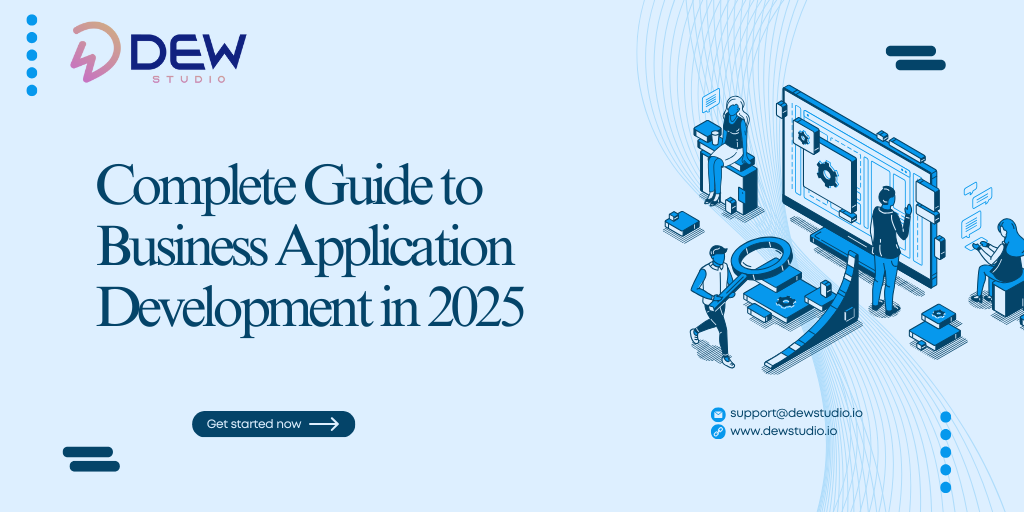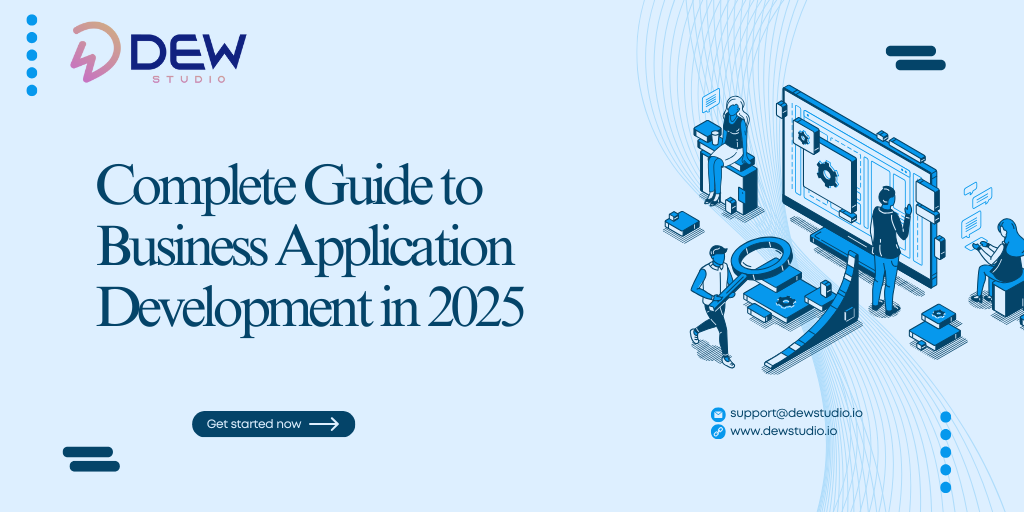
Undoubtedly, enhancing an organization’s many processes is the sole goal of business application development. Examples are helping managers prioritize activities, automating repetitive tasks, handling marketing, or managing human resources.
By optimizing both internal and external procedures, business application software lets you live a more comfortable and easy life.
Nowadays, the question of when to develop a business app is more important than why. To help you start your next project, we’ll review the fundamentals of business app development in this blog.
So, without any further ado, let’s get started!
Business Application Software Development: What Is It?
The main focus of business application software development is on developing enterprise solutions that meet specific business needs. These solutions enable businesses to increase productivity, streamline procedures, and achieve strategic goals.
These specialized apps provide users with efficient, intuitive interfaces and are made to integrate with existing workflows. Thus, they might be as general as data management tools or as complex as corporate systems.
Whether employing business tools for iOS or Android mobile app development, business application development guarantees that companies can use modern technology to keep a competitive edge, streamline operations, and adapt to changes in the market.
Moving ahead, let’s discuss,
Top Major Types of Business Applications!
Choosing the best application for your small business can be easier by knowing the many business applications available.
Popular Business Application Development types:
- eWallet App Development
- Mobile CRM
- Custom CRM software
- Cryptocurrency App Development
- On-Demand App Development
- Social Media App Development
Top Benefits of Business Application Software Development
Though custom app development typically offers more specialized features and more efficient operations, we have focused on off-the-shelf alternatives.
Scalability is given first attention when developing a custom app that is tailored to your brand’s requirements and commercial goals.
You won’t have to worry about monthly fees or license expiration because you will eventually have your custom mobile app, even though the initial costs may be more significant. Creating business applications has several additional benefits.
| Increased Efficiency |
| Improved Data Management |
| Efficient Collaboration/Communication |
| Scalability |
| Cost Savings |
Moving ahead, let’s discuss,
Business Application Development Process
The organized method of developing a business application involves several essential components, including planning, design, development, testing, and deployment. Every step matters, especially for small businesses looking to maximize their investment.
Let’s look at each phase and see how it relates to developing mobile apps for small businesses.
#1. Start with Planning
Planning is the first and most crucial stage. Businesses identify their goals, target market, and key app features during this phase.
As a tip, create a comprehensive project blueprint. This will keep everyone on the same page and help set clear goals. To ensure stakeholders’ needs are met, include them early in the business application development process.
#2. Design UI/UX
Design is where your ideas begin to take shape. This process involves creating wireframes and mockups to aid in application visualization. Think of it as similar to drawing a rough design of your business application before finishing the artwork.
Take advantage of user experience (UX) as a reference. Before developing any modifications, test designs with real users to get feedback. Make sure the app is easy to use and intuitive.
#3. Start Business Application Software Development
The business application development stage is when the actual coding happens. Your app transforms from a concept into a functional product at this stage. This can mean developing services like a product catalog, payment gateway, and shopping cart for a small retail store.
Select the right stack of technologies. Select from native, hybrid, or custom mobile app development based on your needs. Review your progress regularly and adjust as necessary.
#4. Do Extensive Testing
Testing ensures that business application development proceeds according to plan. It’s like revising a text before it’s released. This step includes checking for bugs, performance issues, and usability issues. A small delivery firm might test its app’s order management and GPS tracking features.
Additionally, thoroughly test a range of operating systems and hardware. Use both automated and human testing methods. Promote beta testing to get feedback from actual users.
How to Choose the Best Custom Business Application Development Services?
Choosing the best custom business application development services is crucial to ensuring that your app fits your company’s particular requirements. By considering the following aspects, you ought to be able to make an informed choice:
- Choose a business application development company with experience building similar business applications to your requirements.
- Choose an organization that values transparency and collaboration. This lets you stay updated and participate in the entire mobile application development process.
- Carefully review their portfolio to ascertain the caliber and diversity of the provider’s previous work.
- Verify if the mobile app developers or company offers comprehensive post-launch assistance. For example, regular bug fixes, updates, and technical support.
Conclusion
Developing a business app could have a significant impact on your organization. It can increase productivity, simplify business processes, and increase income. Choosing a reliable partner is essential if you use outsourced development to get an application for your business.
DewStudio by TechRev has extensive experience designing business applications for companies/businesses across various sectors.



